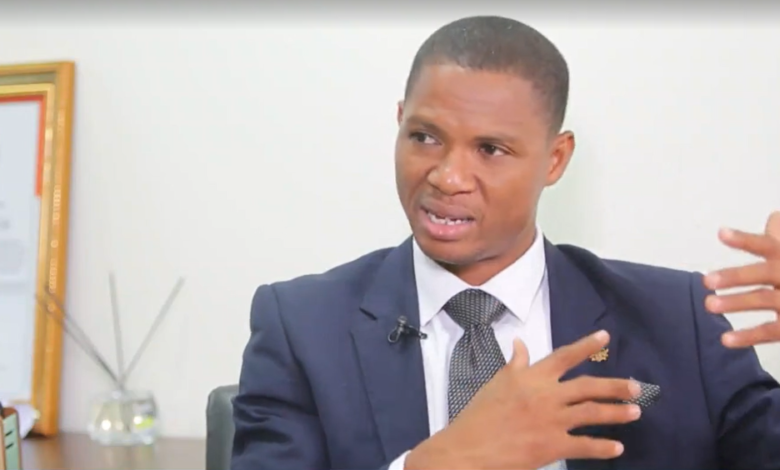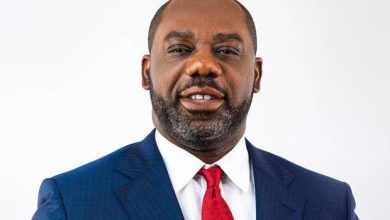Sosu Petitions UN on Akufo-Addo’s Anti-witchcraft Bill Failure

Francis Xavier Sosu, Member of Parliament for Madina in the Greater Accra Region, has submitted petitions to six entities regarding what he characterizes as “President Akufo-Addo’s refusal to approve the anti-witchcraft Bill.”
The institutions petitioned include the Commission on Human Rights and Administrative Justice (CHRAJ), the Council of State, the Office of the United Nations High Commissioner for Human Rights in Geneva, Switzerland, the Chairperson of the African Union Commission (AUC), the Chairperson of the African Commission on Human and Peoples’ Rights, and the President of the ECOWAS Commission.
The object of Anti-Witchcraft Bill
The object of the Anti-witchcraft Bill is to amend the Criminal Offences Act, 1960 (Act 29) to prohibit the practice by any person as a witch doctor or a witchfinder; to proscribe the declaration, accusation, naming or labelling of another person as a witch; and to provide for related matters.
In a petition to the Council of State, Mr Sosu argued that President is in violation of Articles 106(7) and (8) of the Constitution, and grossly misinterpreted Article 108, as it only deals with the procedure of submission and admission of Private member’s Bills, considering that the Bills were rightly admitted by the person presiding, the Rt. Hon. Speaker, Alban Sumana Kingsford Bagbin.
“Also, the interpretation of Article 108 should not and does not include Bills that have been admitted, scrutinized, gone through various Parliamentary stages and passed unanimously by the House. Thus, private Member’s Bills that have been submitted, admitted and passed by Parliament cannot be deemed to have violated Article 108. As such, the actions of the President are therefore untenable, retrogressive, incongruous, and smacks of undermining good governance principles such as the principle of balance of power and effective separation of powers involving key democratic institutions of state,”
“I therefore humbly request and urge You to use your good offices and special mandates to ensure that the sanctity, principles of good democratic governance, and constitutional order as well as the lives and rights of vulnerable persons, especially older women in this specific case and instance, are preserved and not violated by the President of Ghana in such a manner in respect of this Bill. As the leader of the country, he must be open to democratic ideals, seek to reorient his posturing and attitude with respect to the concept and laws on Bills especially private member’s Bills passed by Ghana’s Parliament, as well as follow constitutionally laid down processes where he disagrees.
I look forward to your actions as I am sure they will uphold Ghana’s democratic tenets”
Below is one of the petitions sent to the Council of State;
28th March 2024
THE CHAIRMAN
COUNCIL OF STATE
REPUBLIC OF GHANA
ACCRA
Dear Sir,
PETITION BY HON. FRANCIS-XAVIER SOSU (ESQ), MEMBER OF PARLIAMENT FOR MADINA CONSTITUENCY, REPUBLIC OF GHANA, ON REFUSAL BY H.E. NANA AKUFO ADDO, PRESIDENT OF GHANA, TO ASSENT THE CRIMINAL OFFENSES (AMENDMENT) BILL, 2023, PASSED BY GHANA’S PARLIAMENT TO PROSCRIBE WITCHCRAFT ACCUSATIONS IN GHANA
Introduction
I hope this petition finds you well, hearty, and in good spirits, as I write to draw your attention to the conduct of H. E. Nana Akufo Addo, President of the Republic of Ghana, in respect on the above-mentioned Bill following passage by Parliament on 27th July 2023, and the refusal by the President to follow the constitutional due process relating to assent or refusal to assent to a Bill.
Initiation and Admission of Anti-Witchcraft Bill
On 30th September 2021, I together with colleague MPs namely Hon. Hajia Ayii Ayamba, MP for Pusiga, and Hon. Dr. Godfred Seidu Jasaw, MP for Wa East, initiated a private Member’s Bill to amend the Criminal and Other Offences Act, 1960 (Act 29), to proscribe the declaration, accusation, naming or labelling of another person as a witch; to prohibit a person from employing or soliciting anyone to accuse, name, label, or declare another person as a witch, and to provide for related matters.
This Private member’s Bill was in furtherance to an earlier effort by the 7th Parliament to introduce this law according to a Petition by the Sanneh Institute dated August 4 2019. On 27th July 2021, our country, Ghana, woke up to the disturbing news that a ninety-two-year-old woman had been declared a witch in the community where she lives; had as a result of the declaration been subjected to whipping and died from the inhuman treatment. The treatment meted out to Madam Akua Denteh in 21st century Ghana was brutal, and unacceptable and could not be allowed to pass without specific legislation to prohibit the practice and situations which give rise to such treatment.
The object of Anti-Witchcraft Bill
The object of the Anti-witchcraft Bill is to amend the Criminal Offences Act, 1960 (Act 29) to prohibit the practice by any person as a witch doctor or a witchfinder; to proscribe the declaration, accusation, naming or labelling of another person as a witch; and to provide for related matters.
Date of Gazette and Laying of Anti-Witchcraft Accusations Bill
Following initiation, the Bill was gazetted on Wednesday, December 7 2022, and matured on Wednesday, December 21 2022. On 31st March 2023, the Bill was laid in Parliament and referred to the Constitutional, Legal and Parliamentary Affairs Committee for consideration and report back to the House.
Report of Constitutional, Legal and Parliamentary Affairs Committee on Anti-Witchcraft Bill
On 27th May 2023, the Constitutional, Legal and Parliamentary Affairs Committee met to consider the Bill. In attendance to assist the Committee in its deliberations were Sir Justice Dennis Adjei, Justice of the Court of Appeal, Ms Agnes Quartey-Papafio, Chief State Attorney at the Office of the Attorney General and her other Technical Officers: Mr Nene Ahoma Korda, Ghana Bar Association; ACP Benjamin Osei Addae, Ghana Police Service; Ms Mercy Larbi, Commission on Human Rights and Administrative Justice; and CSP Edem Acquah of the Ghana Prisons Service, with representatives from Sanneh Institute, Actionaid Ghana, and Amnesty International.
Moving for the passage of the Bill on the floor of Parliament, MP for Asante Akim Central Constituency and Chairman of the Constitutional, Legal and Parliamentary Affairs Committee, Hon. Kwame Anyimadu-Antwi, said “Mr Speaker, I will have to thank the sponsors of this Bill, it is one of the inhuman treatments that we do as a country. And I am grateful that the Committee unanimously agreed on the report, and I am happy that the House has also unanimously agreed with us that witchcraft accusations and witch doctors and witch-finders as we find in our Criminal Code must be done away with.”
Subsequently, on Thursday, July 27 2023, the Bills were read on the floor of Parliament for the second and third times and passed by the House. However, it is sad to note that after the passage of the Anti-Witchcraft Bill, five (5) persons have been killed as we await presidential assent.
Visit to witches’ camps and conditions at Camps
Between Saturday, May 27 2022 and Monday, May 29 2022, I toured various witch camps – specifically five (5) witch camps in Northern Ghana to assess the situation faced by alleged witches as well as the conditions in existence at the camps. I was saddened that as a society, we had allowed such violations to persist for many years. Most of them were being abused, tortured, and raped by witch doctors who violated their rights to life and dignity.
One would have thought that during the tenure of a President touted as a human rights lawyer, these situations and occurrences would have become a thing of the past, but NO; the President only seems to be interested in eroding the gains made so far under the 1992 Constitution – what a legacy? Moreso, from a President of a Party that prides itself on safeguarding human rights, individual liberties and personal freedoms. It is no wonder Ghana keeps declining on the World Democracy and Human Development Indices, as the fruits of democracy are not being guaranteed in these respects.
This year’s UPR: Ghana referred to the Bill when it was not yet passed
Also, at the 42nd session of the Universal Peer Review (UPR) held this year in Geneva, Switzerland, the Attorney General, Godfred Yeboah Dame, referred both the death penalty and witchcraft accusations Bills that were before Parliament at the time to stress home Ghana’s commitment and efforts at protecting and preserving rights of persons. It therefore did not come as a surprise that following the passage of the Bills by Parliament, Ghana gained membership of the United Nations Human Rights Council (UNHCR) on Tuesday, October 10 2023.
Continuous violation of the 1992 Constitution and International Laws and Treaties
The current state of affairs and non-passage of the Bill further violates Article 15 of the 1992 Constitution and various international laws and treaties such as the Universal Declaration on Human Rights; the African Charter on Human Peoples’ Rights, the Convention against Torture and other Cruel, Inhuman or Degrading Treatment or Punishment; the Convention on Elimination of All Discrimination against Women (CEDAW), the International Covenant on Economic, Social, and Cultural Rights (CESCR), and the International Covenant on Civil and Political Rights (ICCPR), among others.
President’s Referral to Article 108 Untenable
However, despite the above, Article 108 which details the Settlement of Financial Matters, and for which the President refers to as the basis for his decline or refusal to assent to the Bill states that “Parliament shall not, unless the Bill is introduced or the motion is introduced by, or on behalf of, the President-
- proceed upon a bill including an amendment to a bill, that, in the opinion of the person presiding, makes provision for any of the following-
- the imposition of taxation or the alteration of taxation otherwise than by reduction; or
- the imposition of a charge on the Consolidated Fund or other public funds of Ghana or the alteration of any such charge otherwise than by reduction; or
- the payment, issue or withdrawal from the Consolidated Fund or other public funds of Ghana of any moneys not charged on the Consolidated Fund or any or any increase in the amount of that payment, issue or withdrawal; or
- the composition or remission of any debt due to the Government of Ghana; or
- proceed upon a motion, including an amendment to a motion, the effect of which, in the opinion of the person presiding, would be to make provision for any of the purposes specified in paragraph (a) of this article.
It is my respectful view that the provisions of Article 108 concerning Bills passed by Parliament, specifically, private member’s Bills, lie with the person presiding, and relate to the procedure for admission of such Bills; and not Bills that have been scrutinized and passed by the House.
This is further reemphasized and clarified after a thorough examination of Article 106 of the Constitution, specifically clauses 7-12 which provide as follows:
“(7) Where a bill passed by Parliament is presented to the President for assent, he shall signify, within seven days after the presentation, to the Speaker that he assents to the bill or that he refuses to assent to the bill, unless the bill has been referred by the President to the Council of State under article 90 of this Constitution.
(8) Where the President refuses to assent to a bill, he shall, within fourteen days after the refusal –
- state in a memorandum to the Speaker any specific provisions of the bill which in his opinion should be reconsidered by Parliament, including his recommendations for amendments if any; or
- inform the Speaker that he has referred the bill to the Council of State for consideration and comment under article 90 of this Constitution.
(9) Parliament shall reconsider a bill taking into account the comments made by the President or the Council of State, as the case may be, under clause (8) of this article.
(10) Where a bill reconsidered under clause (9) of this article is passed by Parliament by a resolution supported by the votes of not less than two-thirds of all the members of Parliament, the President shall assent to it within thirty days after the passing of the resolution.
(11) Without prejudice to the power of Parliament to postpone the operation of a law, a bill shall not become law until it has been duly passed and assented to in accordance with the provisions of this Constitution and shall not come into force unless it has been published in the Gazette.
(12) The provisions of clauses (7) to (10) of this article shall not apply to a bill certified by the Speaker as a bill to which the provisions of article 108 of this Constitution apply; and accordingly, the President shall give his assent to any such bill when presented for assent.”
It is therefore my considered view that the above laws relating to the initiation, passage by Parliament, and assent to a Bill, in this case, private Member’s Bill are clear and unambiguous, and thus, make the President’s actions a clear violation of the 1992 Constitution.
Conclusion
In conclusion, it is therefore my considered view that the President is in violation of Articles 106(7) and (8) of the Constitution, and grossly misinterpreted Article 108, as it only deals with the procedure of submission and admission of Private member’s Bills, considering that the Bills were rightly admitted by the person presiding, the Rt. Hon. Speaker, Alban Sumana Kingsford Bagbin. Also, interpretation of Article 108 should not and does not include Bills that have been admitted, scrutinized, gone through various Parliamentary stages and passed unanimously by the House. Thus, private Member’s Bills that have been submitted, admitted and passed by Parliament cannot be deemed to have violated Article 108. As such, the actions of the President are therefore untenable, retrogressive, incongruous, and smacks of undermining good governance principles such as the principle of balance of power and effective separation of powers involving key democratic institutions of state.
I therefore humbly request and urge You to use your good offices and special mandates to ensure that the sanctity, principles of good democratic governance, and constitutional order as well as the lives and rights of vulnerable persons, especially older women in this specific case and instance, are preserved and not violated by the President of Ghana in such a manner in respect of this Bill. As the leader of the country, he must be open to democratic ideals, seek to reorient his posturing and attitude with respect to the concept and laws on Bills especially private member’s Bills passed by Ghana’s Parliament, as well as follow constitutionally laid down processes where he disagrees.
I look forward to your actions as I am sure they will uphold Ghana’s democratic tenets.
Signed
Hon. Francis-Xavier Sosu (Esq)
MP, Madina Constituency
Republic of Ghana
Cc: The Commissioner
Commission on Human Rights and Administrative Justice
Accra – Ghana
The President
ECOWAS Commission
The Chairperson
African Commission on Human and Peoples’ Rights
The Chairperson
African Union Commission
The Office of the United Nations High Commissioner for Human Rights
Geneva – Switzerland
Read Also: Atta Akyea: ECG May Collapse On Full Cash Waterfall Compliance



